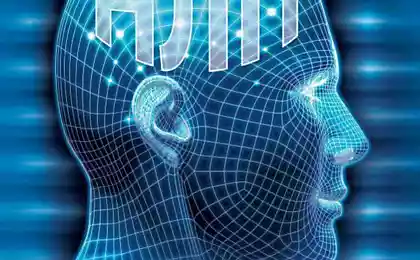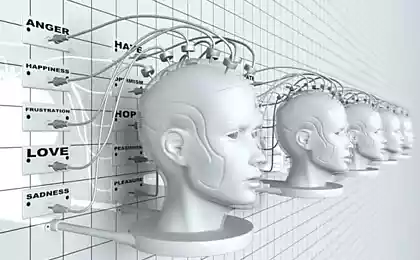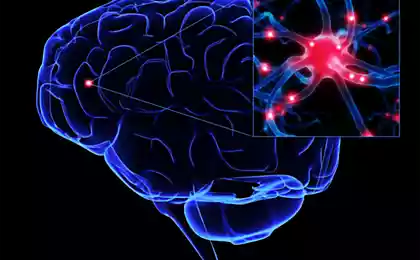532
Limiting beliefs a person by albert Ellis
Typical limiting beliefs of the person:
1. The idea that an adult is absolutely necessary to be loved or receive the General approval of all, whatever he was doing, instead of sosredotochitsya self-esteem on the approval where necessary (e.g. for promotion), and not to be loved and to love.
2. The idea that certain actions are vicious, immoral, disgusting, and the people who commit them must be severely punished — instead of the idea that certain acts are inappropriate or antisocial, and the people who do so, either stupid, or ignorant, or suffer from emotional disorders.

3. The idea that when things do not go as we would like man, it's terrible, it's a nightmare and a disaster — instead of the idea that bad when everything goes wrong, as we would like, and postacademic should try to change not satisfied with his situation or to take an alarming situation under control in order to feel better, but if the change or control is not feasible, a person is better to accept the inevitable and stop telling myself how bad it is.
4. The idea that all human misery it causes the external environment, that unhappy people make people and events of the outer world, instead of the idea that the cause of all misery is rather the way a person looks at things than the things themselves.
5. The idea that if something can be dangerous and confusing, or is such, the person should be greatly concerned — is the idea that eclicto or may be dangerous or confusing or is such, the person needs to face these phenomena and to try to make it so that they no longer represented for him a danger, and if this is not possible, think about something else and prestatividade how terrible situation it is or could be.
6. The idea that it is easier to avoid responsibilities and difficulties of life, than to solve itproblem, instead of the idea that so-called easy way out always in the end will be much more difficult than much more difficult path, and that the only true way of solving life's problems — a fair fight with them.
7. The idea that man needs someone stronger and more powerful than him, on whom he could rely on, instead of the idea that is always much better to stand on sobstvennogo and believe in yourself and in what you yourself are able to endure the hardships of life.
8. The idea that man must be absolutely competent to meet the requirements, to be smart and to earn universal respect, — instead of ideas about what people should do, and not try to make it good, and that one must accept ourselves as being imperfect, which, like all people, is not limitless, and, like everything, it can make mistakes and has every right to do.
9. The idea that if any one had an impact on a person's life, the impact this will never end — instead of the idea that people should learn from their past experiences but not be overly fixated on it and do not become a slave, predubezhdenie prejudice.
10. The idea that we are completely dependent on what other people do, and that we daniplast effort to change them to your liking, instead of the idea that the faults of the people is, in large account, their problem, and putting pressure on them with clusterit them in the vast majority of cases will not be able to help them change.
11. The idea that people can be happy without showing activity ine taking no action, — instead of the idea that the most happy and active people, engaged in creative or people who devote themselves to others and projects.
12. The idea that people are actually not able to control their emotions and not mozete to experience certain experiences, instead of the idea that people can completely control their feelings and emotions if he is making efforts to contain them, and use correct sentences to communicate with yourself.
The theory of rational psychotherapy of Ellis suggests that the basis of neurotic behavior is the irrationality that human activity finds vyrajeniem the form of emotions. A person need only rationally to structure their thinking, and rational behavioral patterns will not be forthcoming.
Irrational behavior based on emotional groundless assumptions. Egoism is rationally organized person is in harmony with the public interest; man is by nature committed to love, to be of some interest to others, seeks to help his fellow men.
Irrational thinking is the cause of self-destructive tendencies and self-loathing. Man is relatively free from psychosis, moderately intelligent, non-adherent to the dogmas of other types of psychotherapy (e.g., Freudianism), better suited to rational psychotherapy. Here are the key ideas dear to the heart of every therapist, practitioner of rational analysis.
Among them:
See also:
Not your people anyway, you will go
On the other side of boredom, or ennui, as the return to yourself
P. S. And remember, only by changing their consumption — together we change the world! ©
Join us in Facebook , Vkontakte, Odnoklassniki
Source: professionali.ru/Soobschestva/psi-faktorvzglyad/ogranichivajuschie-ubezhdenija-i/
1. The idea that an adult is absolutely necessary to be loved or receive the General approval of all, whatever he was doing, instead of sosredotochitsya self-esteem on the approval where necessary (e.g. for promotion), and not to be loved and to love.
2. The idea that certain actions are vicious, immoral, disgusting, and the people who commit them must be severely punished — instead of the idea that certain acts are inappropriate or antisocial, and the people who do so, either stupid, or ignorant, or suffer from emotional disorders.

3. The idea that when things do not go as we would like man, it's terrible, it's a nightmare and a disaster — instead of the idea that bad when everything goes wrong, as we would like, and postacademic should try to change not satisfied with his situation or to take an alarming situation under control in order to feel better, but if the change or control is not feasible, a person is better to accept the inevitable and stop telling myself how bad it is.
4. The idea that all human misery it causes the external environment, that unhappy people make people and events of the outer world, instead of the idea that the cause of all misery is rather the way a person looks at things than the things themselves.
5. The idea that if something can be dangerous and confusing, or is such, the person should be greatly concerned — is the idea that eclicto or may be dangerous or confusing or is such, the person needs to face these phenomena and to try to make it so that they no longer represented for him a danger, and if this is not possible, think about something else and prestatividade how terrible situation it is or could be.
6. The idea that it is easier to avoid responsibilities and difficulties of life, than to solve itproblem, instead of the idea that so-called easy way out always in the end will be much more difficult than much more difficult path, and that the only true way of solving life's problems — a fair fight with them.
7. The idea that man needs someone stronger and more powerful than him, on whom he could rely on, instead of the idea that is always much better to stand on sobstvennogo and believe in yourself and in what you yourself are able to endure the hardships of life.
8. The idea that man must be absolutely competent to meet the requirements, to be smart and to earn universal respect, — instead of ideas about what people should do, and not try to make it good, and that one must accept ourselves as being imperfect, which, like all people, is not limitless, and, like everything, it can make mistakes and has every right to do.
9. The idea that if any one had an impact on a person's life, the impact this will never end — instead of the idea that people should learn from their past experiences but not be overly fixated on it and do not become a slave, predubezhdenie prejudice.
10. The idea that we are completely dependent on what other people do, and that we daniplast effort to change them to your liking, instead of the idea that the faults of the people is, in large account, their problem, and putting pressure on them with clusterit them in the vast majority of cases will not be able to help them change.
11. The idea that people can be happy without showing activity ine taking no action, — instead of the idea that the most happy and active people, engaged in creative or people who devote themselves to others and projects.
12. The idea that people are actually not able to control their emotions and not mozete to experience certain experiences, instead of the idea that people can completely control their feelings and emotions if he is making efforts to contain them, and use correct sentences to communicate with yourself.
The theory of rational psychotherapy of Ellis suggests that the basis of neurotic behavior is the irrationality that human activity finds vyrajeniem the form of emotions. A person need only rationally to structure their thinking, and rational behavioral patterns will not be forthcoming.
Irrational behavior based on emotional groundless assumptions. Egoism is rationally organized person is in harmony with the public interest; man is by nature committed to love, to be of some interest to others, seeks to help his fellow men.
Irrational thinking is the cause of self-destructive tendencies and self-loathing. Man is relatively free from psychosis, moderately intelligent, non-adherent to the dogmas of other types of psychotherapy (e.g., Freudianism), better suited to rational psychotherapy. Here are the key ideas dear to the heart of every therapist, practitioner of rational analysis.
Among them:
- "Man, you're free to decide."
- "Improve your personality"
- "Live in dialogue with others"
- "Your own experience — that the last resort"
- "Live a full life in each moment"
- "No other truth, apart from the action"
- "You can surpass yourself, if you're going to be active"
- "A creative approach to the realization of their potential"
- "Making your own decisions, you become a man"
- "You must come to terms with the limitations which certainly puts life."
See also:
Not your people anyway, you will go
On the other side of boredom, or ennui, as the return to yourself
P. S. And remember, only by changing their consumption — together we change the world! ©
Join us in Facebook , Vkontakte, Odnoklassniki
Source: professionali.ru/Soobschestva/psi-faktorvzglyad/ogranichivajuschie-ubezhdenija-i/























